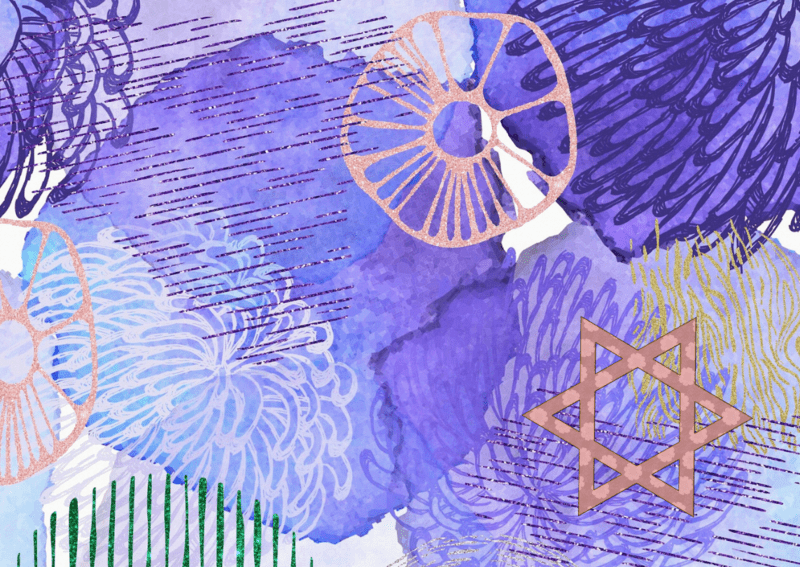Confronting My Assumptions about Orthodox Judaism
Until recently, my impressions of Orthodox Judaism largely came from conversations with my father, who grew up in New York City. He told me the stories of people he met in college who had fled ultra-Orthodox communities. I considered these stories with a shudder; the situations he described—teenagers married off, children raised unaware of the outside world, men and women unable to pursue education—were completely contrary to my vision of Judaism. I didn’t know many ultra-Orthodox Jews, so my mind constructed a caricatured image of ultra-Orthodox men as misogynists and ultra-Orthodox women as tragically uneducated supporters of their oppression. The summer before last, I was forced to grapple with my assumptions.
In the summer of 2019 (pre-COVID-19), I attended a secular Jewish event. In a sea of stands, I noticed one occupied by men and women wearing black coats and long skirts that seemed far too warm for the blistering weather. The table before them was filled with spools of tefillin and pamphlets that they attempted to give the teenagers passing by. I walked by them at first without much thought.
But as I exited the lunch room the following day, I noticed a man at the same stand calling out to the teenage boys walking by. I stepped away from my gaggle of friends and found my mind focused on the girls helping to run the stand. They were mostly young, with skirts scraping the floor. Pity rose in my gut as I constructed a life for them based on what little I knew. I assumed that the men around these girls had communicated out of fear or malice that women were lesser and could only occupy a limited number of domestic roles. As my imaginings enlarged, I fixated on a clear example of this exclusion: only boys were being asked to wrap tefillin. I had wrapped tefillin a few times before and never found it particularly meaningful. Yet I was convinced that I needed to protest not simply sexist beliefs, but also these men who I saw as misogynists in their entirety. With burgeoning righteous indignation, I approached the stand.
A man came to meet me as I approached, visibly glad to have someone to proselytize. I asked softly, my nerve draining away, whether I could wrap tefillin. Immediately, his hands, palms up faced in greeting moments ago, dropped to his sides. Eyes darting around, he attempted to steer me towards other (more “womanly”) modes of worship.
“No, thank you,” I replied, a smile gripping my face. Unsure of what else to do, I walked away.
My feminist duty fulfilled, I didn’t dwell on the interaction. But later that day, the leader of my group came up to me and asked what had happened with the ultra-Orthodox group, lines of worry etched into her face.
“How did you find out?” I asked.
“One of the people from the stand reached out to the front desk and asked how you were doing. They were hoping to apologize for making you feel uncomfortable.”
I felt this knowledge, that someone from the stand had shown concern for me, move into my awareness like a sudden trickle of frigid water, beginning with a jolt and slowly seeping through my being. As my group leader walked away, I glanced at the ultra-Orthodox stand again. The people behind it were more than their modest clothes and the restrictions I had so eagerly railed against. I had reduced them to an assumption molded by a society increasingly intolerant of organized religion.
I have a complicated relationship with Orthodox Judaism and the ways in which some denominations' rigid parameters around gender and sexuality exclude other Jews. Since that encounter (and through many others), I have come to understand that no sect is a monolith, and that I can't and shouldn't make assumptions about others’ religious practices. But more importantly, I remind myself of a core tenet of Judaism: every person has value and the capacity to change. Facing each decision, we are given another chance to do better.
I believe women should be allowed to wrap tefillin, but I realize now that I put those men in an impossible situation. Viewing them as “other,” I asked them to violate their beliefs at my whim. I wasn’t even particularly interested in performing the ritual I had asked about. It's not wrong for me to voice my views, but merely asserting my beliefs without committing to the difficult work of reaching out to people was self-righteous and detrimental to both myself and the people at the stand. It takes effort to remember that any structures I view as oppressive are, for good or bad, made up of individuals, each with their stories. This does not justify discriminatory actions, but it does suggest that I need to approach situations like this with empathy and work to hear and address individual experiences.
I spent the rest of my time at the event avoiding that group. Now, I wish I'd asked them why they believe what they do. Maybe then, we could have had a conversation, instead of acting out our accepted roles. Maybe then, we both could've learned something.
This piece was written as part of JWA’s Rising Voices Fellowship.








This is such an amazing piece! You write so honestly and beautifully